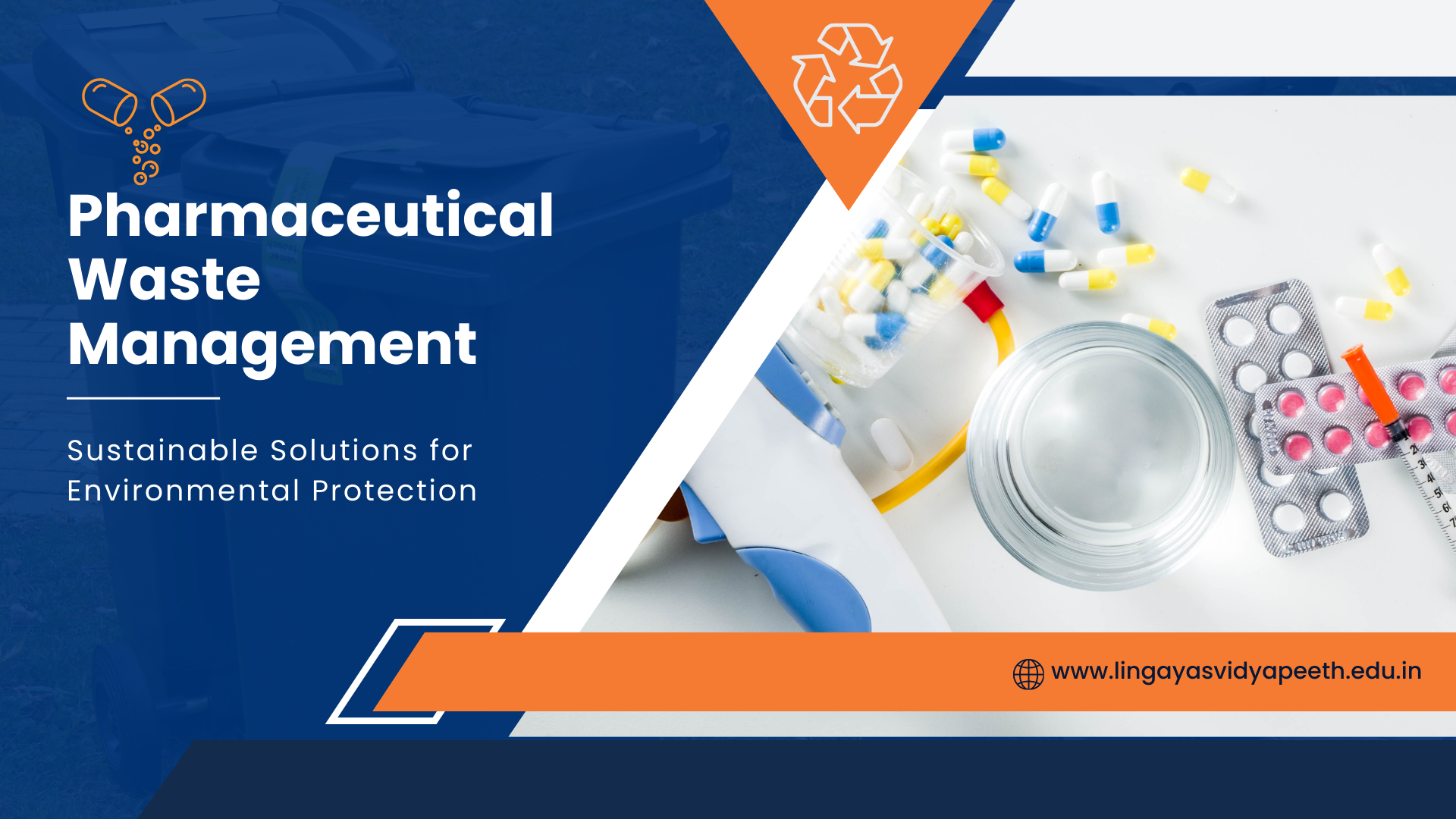Home » Pharmaceutical Waste Management: Sustainable Solutions for Environmental Protection

The pharmaceutical industry is a beacon of medical advancement, but its waste stream poses a growing threat to our environment. Unused, expired, and contaminated medications end up in landfills, sewage systems, and even our waterways. This pharmaceutical waste can harm wildlife, pollute drinking water, and contribute to antibiotic resistance. But fear not! Sustainable solutions are emerging to transform pharmaceutical waste management and protect our planet.
Pharmaceutical waste encompasses a broad spectrum of discarded materials, including:
Innovations in Nutraceutical: Current Practices, Potential Applications and Emerging Tendencies
Improper pharmaceutical waste disposal can have dire consequences for our environment and public health:
Fortunately, a multi-pronged approach can curb pharmaceutical waste and protect our environment. Here are some promising solutions:
Innovations in Pharmaceutical Sciences
Pharmacists serve as advocates for sustainability, guiding patients and healthcare providers towards environmentally responsible practices. By educating patients about proper medication disposal and promoting sustainable alternatives, pharmacists empower individuals to make eco-conscious choices. Additionally, pharmacists can champion green initiatives within their own practices, fostering a culture of environmental stewardship in the healthcare community.
Conclusion:
In conclusion, pharmaceutical waste management presents both challenges and opportunities in our quest for a greener future. By embracing sustainable solutions and fostering a culture of environmental responsibility, we can minimize our impact on the planet while advancing healthcare. Empowering patients, raising awareness, implementing recycling initiatives, enforcing regulations, and embracing green pharmacy practices are pivotal steps in nurturing the Earth and safeguarding our collective well-being.
Passionate about pursuing a bachelor degree in Pharmacy? Choose the best university in Delhi NCR for studying Pharmacy. At Lingaya’s Vidyapeeth is Top Pharmacy College in Delhi NCR, pursuing a pharmacy degree means embracing a holistic approach to education. With state-of-the-art facilities, expert faculty, and a commitment to excellence, Lingaya’s Vidyapeeth offers unparalleled opportunities for academic growth and professional development. The innovative curriculum integrates hands-on experience with cutting-edge research, preparing students to excel in the dynamic field of pharmacy.
From
Pooja Dhama
Assistant Professor
School of Pharmacy
Lingaya’s Vidyapeeth
Top Colleges in Faridabad
RECENT POSTS
CATEGORIES
TAGS
Agriculture Agriculture future AI Architecture artificial intelligence BA English BA Psychology BTech CSE BTech Engineering Business management career Career-Specific Education career guide Career Opportunities career option career scope Civil engineering commerce and management Computer Science Computer science engineering Data science degree education Engineering Engineering students English Literature english program Exam tips Fashion Design Fashion design course Higher Education Journalism journalism and mass communication law Law career Machine Learning MA Psychology Master degree mathematics MBA Mechanical Engineering Pharmacy Psychology Research and Development students
University Address: Nachauli, Jasana Road, Faridabad, Haryana
Toll Free: 1800-120-4613
Mobile : 8447744303 | 8447744304 | 8447744306 | 8447744309
Address: C-72, Second Floor, Shivalik, Near Malviya Nagar,
Above HDFC Bank, New Delhi 110017
Ph.No. - 011-46570515 / 45138169 / 41755703 / +91-7303152412
Jagmani Kutir, Ground Floor, Road No-1, Rajeev Nagar,
Near Darbar Marriage Hall, Patna-800024, Bihar
Contact No: 9818352069/8130120095
Mail: [email protected]
Copyrights © 1998 - 2025 Lingaya's Vidyapeeth (Deemed To Be University). All rights reserved.
It is important to note that the following email IDs and domains are fraudulent and do not belong to our university.
LV only conducts physical/online verification of any document related to examination on the following email id: